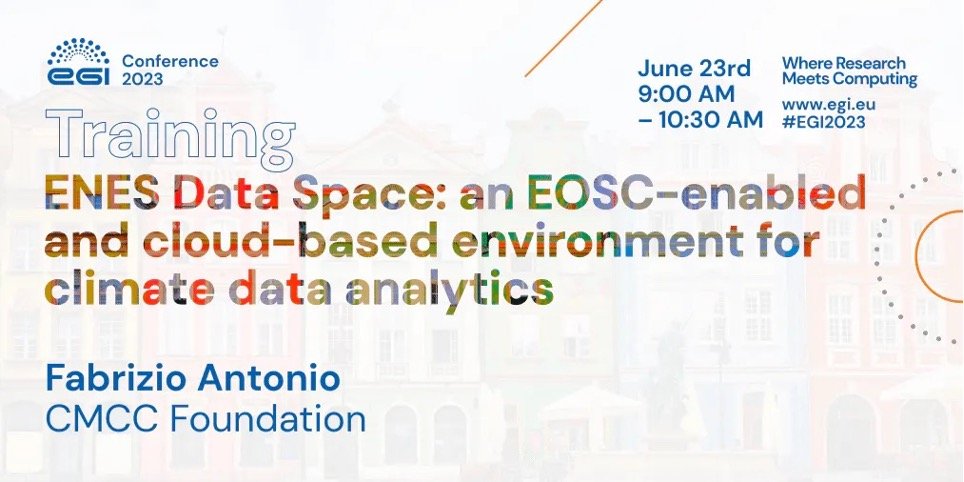
Research and innovation in data-intensive processing and analytics will be the focus of the 2023 EGI annual conference taking place in Poland from June 19 to 23, 2023. The contribution of the CMCC Foundation, offering a training course on “ENES Data Space: an EOSC-enabled and cloud-based environment for climate data analytics.”
The exponential increase in data volumes and complexities is causing a radical change in the scientific discovery process in several domains, including climate science. This affects the different stages of the data lifecycle, thus posing significant data management challenges in terms of data archiving, access, analysis, visualization, and sharing.
From June 19 to 23, 2023, international scientific communities, computing and service providers, European projects, security experts, community managers, and policy makers will gather in Poznań, Poland at the 2023 EGI annual conference to take research and innovation in data-intensive processing and analytics forward.
The conference program includes training opportunities to connect with high-qualified specialists in a variety of fields and sectors. CMCC Research Engineer Fabrizio Antonio will introduce the ENES (European Network for Earth System modelling) Data Space environment for climate data analytics on June 23.
In the context of the European Open Science Cloud (EOSC) initiative launched by the European Commission, the ENES Data Space represents a domain-specific implementation of the data space concept, a digital ecosystem supporting the climate community towards a more sustainable, effective, and FAIR use of data. The service, developed in the context of the EGI-ACE project (EGI Advanced Computing for EOSC), aims to provide an open, scalable, cloud-enabled data science environment for climate data analysis on top of the EOSC Compute Platform.
The tutorial offered by Antonio will showcase how scientific users can benefit from the ENES data space to perform data analytics and visualization applied to climate and weather domains. More specifically, the training will cover topics from simple analytics tasks to real application examples (e.g., computation of climate indices, machine learning training and inference, etc.) using open-source tools, libraries and frameworks from the Python ecosystem.
For more information:
ENES Data Space: an EOSC-enabled and cloud-based environment for climate data analytics



